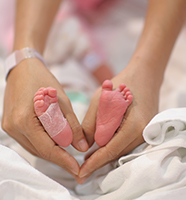Health care
Access to health care
Respondents highlighted several barriers that prevent asylum seekers and refugees in obtaining care. These include: misinformation, confusion on the eligibility for health care, and professionals’ lack of understanding of their role and lack of knowledge related to the needs of asylum seekers and refugees. Asylum seekers and refugees experience challenges in registering with a general practitioner (GP). It is very difficult to approach a new and unfamiliar health care system, particularly for asylum seekers and refugees with multiple health needs requiring numerous investigations and follow-up appointments. This can often be compounded by cultural and psychological problems related to pre-migration, migration and post-migration problems, and language differences between asylum seekers and refugees and healthcare providers.
It is important to ensure that asylum seekers and refugees have access to health care as early as possible. Accessing health care and other support can assist asylum seekers and refugees to deal with the practical and emotional demands of settling in the UK. Poor health, however, can serve as a significant barrier to settlement. For example, post-traumatic stress disorder (PTSD) symptoms, such as poor concentration, may interfere with the important task of learning English. Similarly, chronic pain, a common consequence of torture and war-related injury, may affect the ability to perform day-to-day tasks e.g. parenting or caring for loved ones for those with caring responsibility.
Another issue respondents discussed at length was the fact that the attitudes of the media and public drive refugee policy. Therefore, there is a need for political awareness and political intervention to eliminate or reduce public hostility, as these issues often leave asylum seekers and refugees feeling marginalised and insecure which prevent them accessing health care.
Eligibility for health care
All asylum seekers, refugees and their dependents, at whatever stage of their asylum claim, are entitled to all NHS care without payment. However, rules on entitlement are also subject to review and up-to-date advice should therefore be sought. Nonetheless, there are some principles that generally apply:
- Urgent medical treatment should never be denied to any person, regardless of whether or not they are resident in the UK, or are able to pay in advance
- Treatment for life-threatening conditions and the prevention of any conditions from becoming life-threatening is normally given regardless of ability to pay
- Maternity services should always be classed as 'immediately necessary treatment'
- Government guidance says that immediately necessary treatment (which includes maternity care) must not be refused because a woman cannot pay in advance
The NHS also has the ability to write off debts and not pursue them where the patient is destitute or genuinely without funds. The following services are exempt from charges for anyone who needs them, regardless of their immigration or residence status:
- Accident and emergency (A&E) services up until the point that the person is accepted as an inpatient. A&E services provided at an outpatient appointment are chargeable
- Family planning services (not including pregnancy termination)
- Diagnosis and treatment of certain contagious diseases e.g. TB or HIV
- Diagnosis and treatment of sexually transmitted infections
- Treatment of any physical or mental condition that is a direct result of torture, female genital mutilation (FGM), domestic violence or sexual violence (as long as the patient has not travelled to the UK in order to seek treatment).





